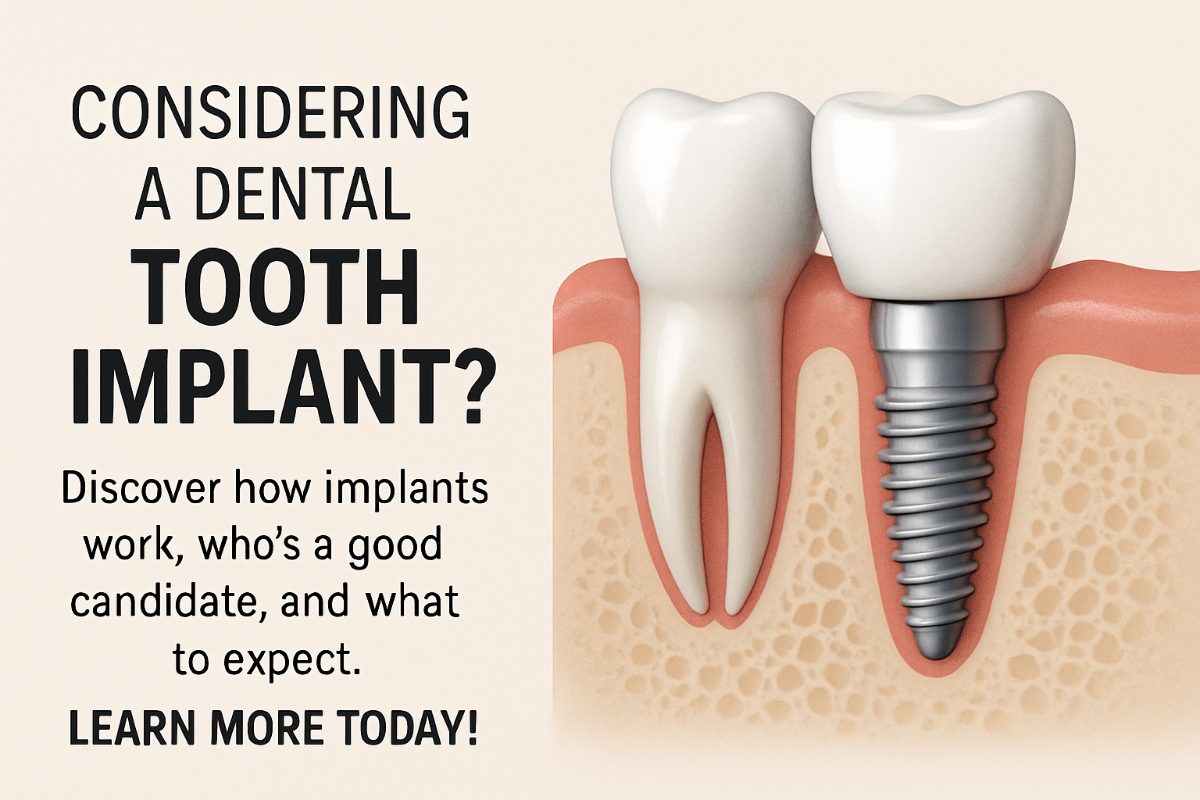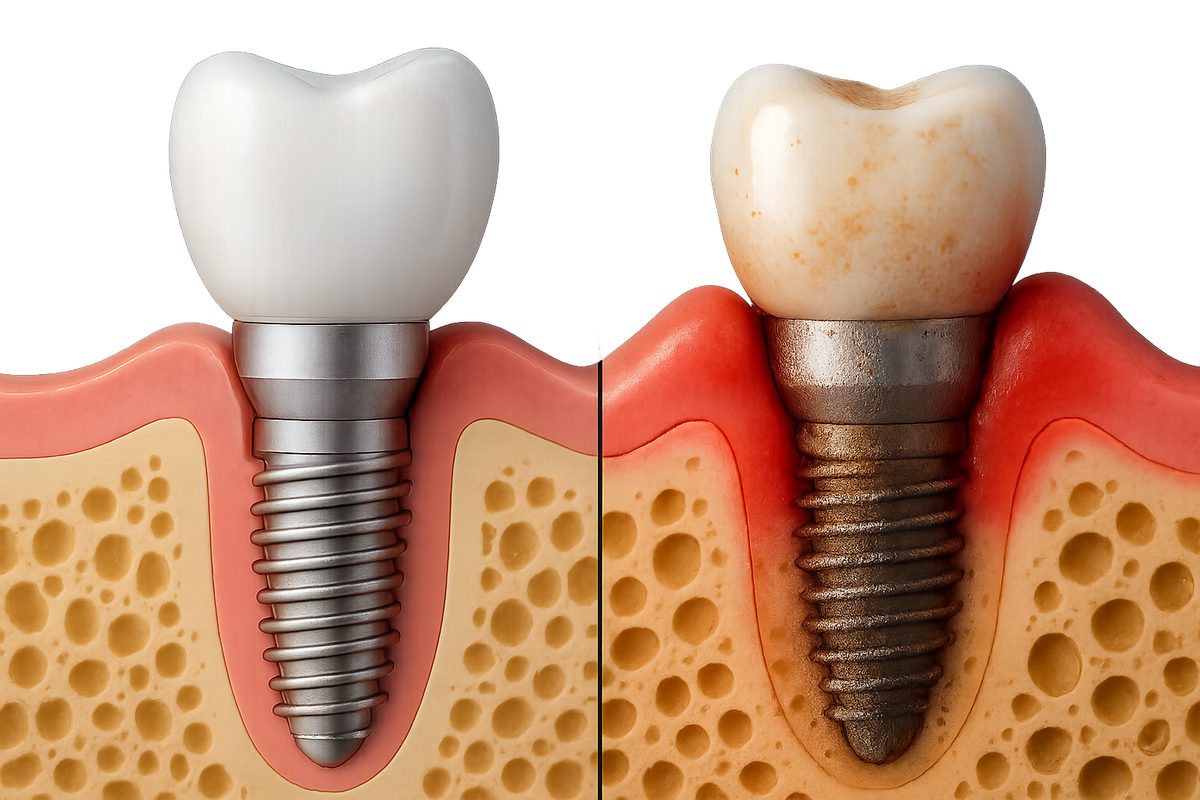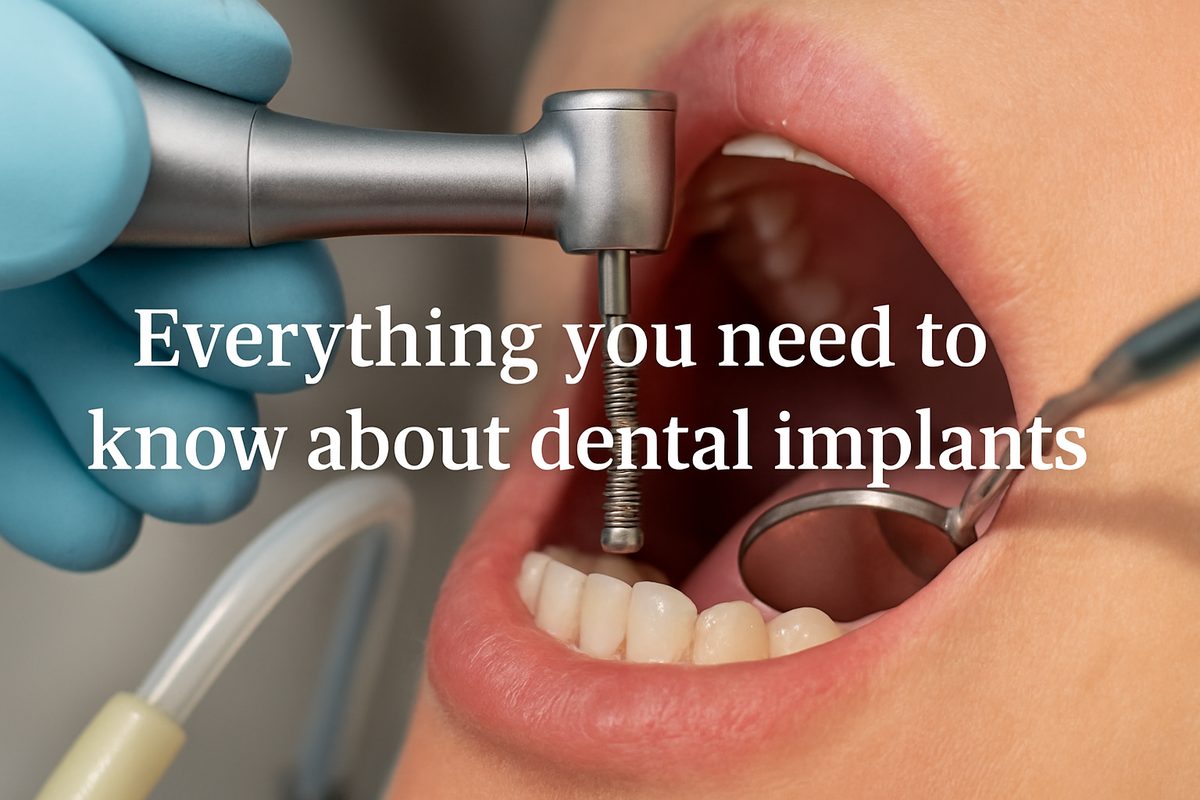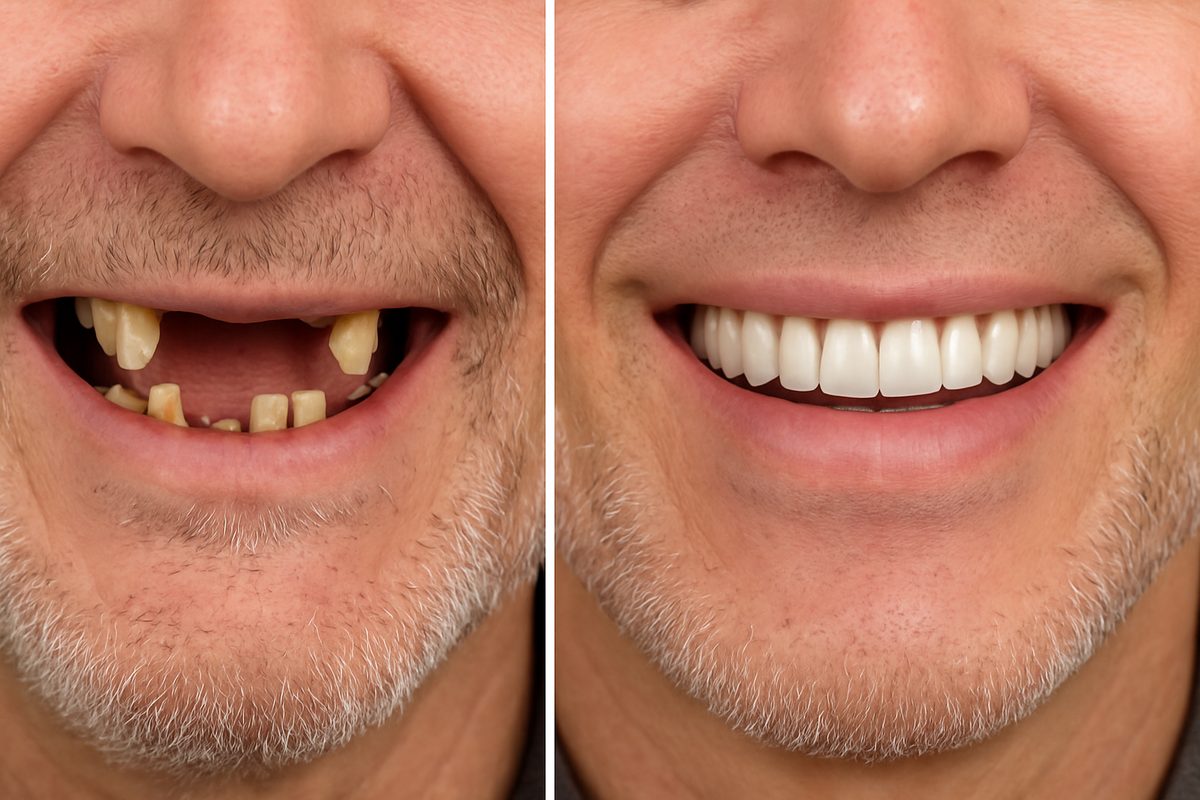Dental Blog - Concord, NC
Tips, Facts, And The
Latest In Dentistry

What Are Your Options For Replacing Teeth?
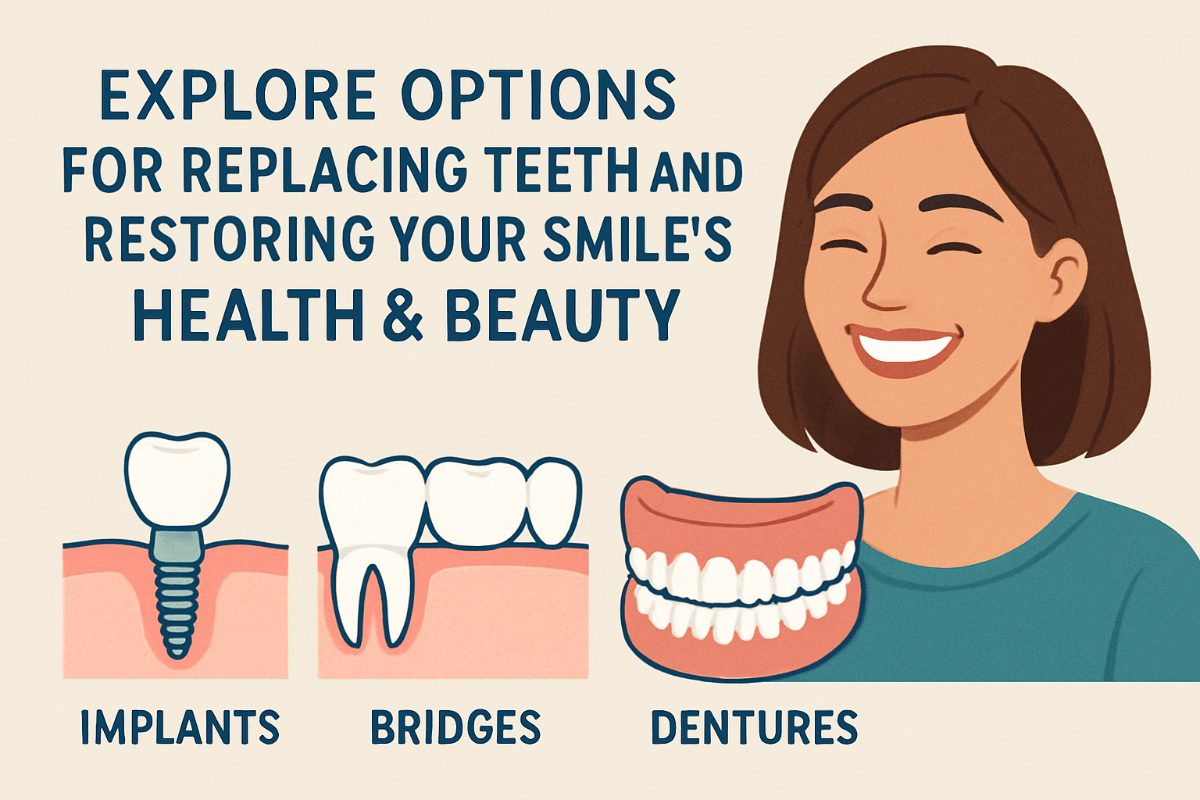
Missing teeth affect more than your smile. They can change how you chew, alter your speech, and lead to bone loss and shifting teeth. Replacing missing teeth helps protect your oral health and restores function.
This article explains the main options for replacing teeth, who each option suits, and how to pick the right solution for your needs. Read on for clear, practical next steps.
Common options for replacing teeth
Removable partial and full dentures
Removable dentures are false teeth attached to a plastic or metal base. Partials replace a few missing teeth and clip to nearby teeth. Full dentures replace an entire arch.
- Best for: People missing many teeth or those who need a non-surgical option.
- Pros: Lower upfront cost; non-invasive; quick to get.
- Cons: Can feel bulky; may slip while eating or speaking; need daily cleaning and periodic relines.
Dental bridges
Bridges fill one or a few adjacent gaps by anchoring a false tooth to neighboring natural teeth or implants. They are fixed in place and feel more stable than removable options.
- Best for: One or two missing teeth next to healthy teeth.
- Pros: Natural appearance; faster timeline than implants; no denture removal.
- Cons: Adjacent teeth need reshaping; may wear over time; not ideal if surrounding teeth are weak.
Dental implants (single crowns and implant-supported bridges)
Implants are titanium posts placed in the jawbone to replace tooth roots. A crown or bridge attaches to the implant. They act and feel like natural teeth.
- Best for: People with good bone and oral health who want a long-term solution.
- Pros: Preserve jawbone, prevent shifting, strong chewing function, long lifespan when maintained.
- Cons: Higher cost; requires surgery and healing time; may need bone grafts in some cases.
Implant-supported dentures / overdentures
These combine implants with a denture to give extra stability. The denture clips or screws onto implants and can be removable or fixed depending on the design.
- Best for: People missing most or all teeth who want better function than traditional dentures.
- Pros: Much more stable than regular dentures; improved chewing and comfort.
- Cons: Higher cost than dentures; requires implant placement and ongoing maintenance.
How to choose the right option
Choosing among the options for replacing teeth depends on several factors. Consider these key points:
- Number and location of missing teeth: Single gaps often suit implants or bridges; full arches may need dentures or implant-supported solutions.
- Oral health: Bone quality, gum disease, and the condition of remaining teeth affect choices. Implants need enough healthy bone.
- Health and age: Certain medical issues or medications can affect healing after surgery.
- Budget and insurance: Dentures are usually least expensive up front; implants cost more but last longer. Think about long-term value.
- Appearance and function goals: If you want the most natural feel and chewing power, implants are often best. If you need a quick solution, dentures or bridges may work.
Cost, lifespan, and maintenance expectations
Costs vary, but a general order is: dentures < bridges < implants. Exact prices depend on materials, labs, and regional factors.
Expected lifespans:
- Dentures: 5–10 years with relines and repairs.
- Bridges: 7–15 years depending on care and nearby teeth.
- Implants: 15+ years and often a lifetime with good care.
Maintenance:
- Dentures require daily cleaning and soaking.
- Bridges need careful brushing and flossing around the abutment teeth.
- Implants need the same daily care as natural teeth and regular dental checkups. Implant-supported dentures may need periodic tightening or replacement of attachments.
When to see a dentist and next steps
See a dentist as soon as possible if you have missing teeth. Early planning prevents further bone loss and damage to nearby teeth.
At your first consult you can expect:
- A thorough exam and medical history review
- X-rays or a CBCT scan to check bone and structure
- A discussion of all treatment options tailored to your needs
- A clear plan with timelines, costs, and next steps
Questions to ask your dentist:
- Which options fit my situation and why?
- What are the risks and benefits of each option?
- How long will treatment take and what is the estimated cost?
- Do you have before-and-after photos of similar cases?
- What financing or payment options are available?
Our practice can help you review the best options for replacing teeth for your mouth and lifestyle. Schedule a consultation to get a personalized treatment plan, see cost estimates, and start restoring your function and smile.


